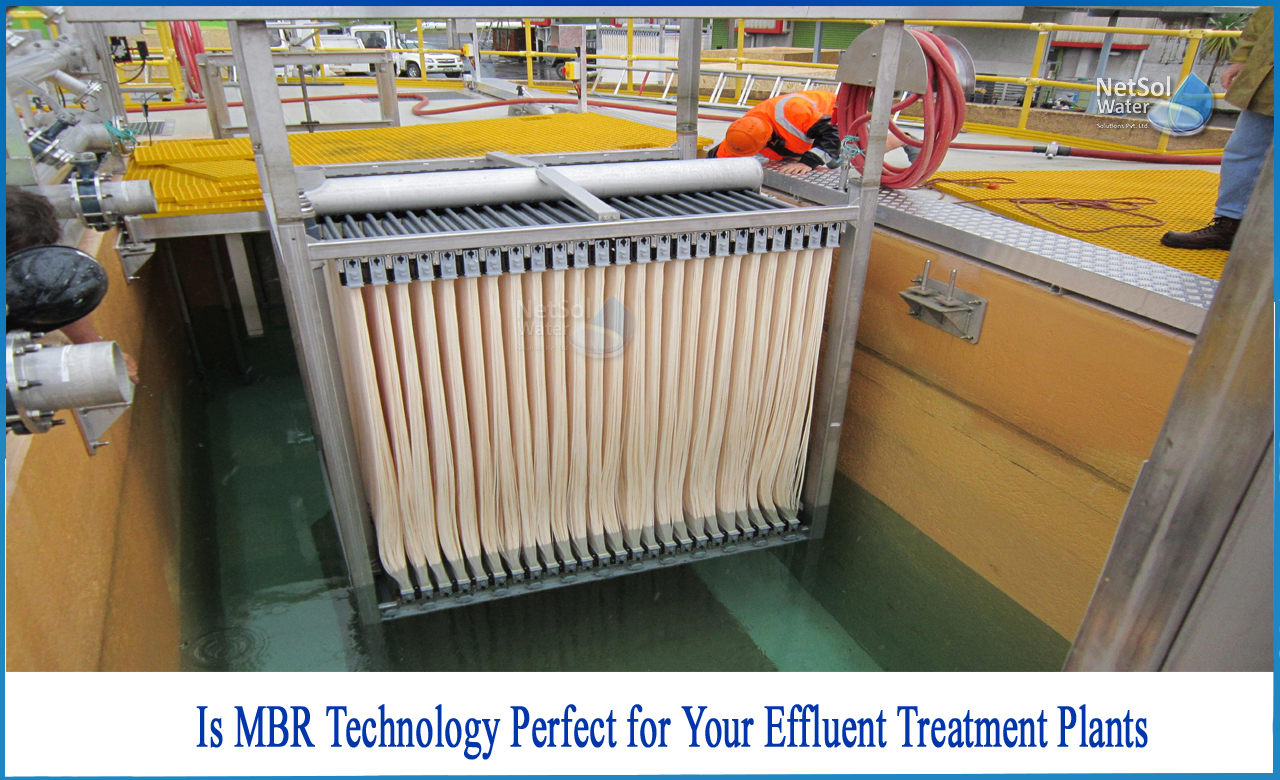Is MBR technology perfect for your ETP?
Membrane bioreactors combine a suspended growth biological treatment technology, such as activated sludge, with membrane filtration equipment, such as reverse osmosis or low-pressure microfiltration (MF) or ultrafiltration (UF) membranes, for wastewater treatment. The membranes are utilized to separate solids from liquids, which is a crucial function. Secondary and tertiary clarifiers, as well as tertiary filtering, have typically been used in activated sludge plants to accomplish this.
The membrane bioreactor (MBR) has developed as a cost-effective and compact wastewater treatment device for municipal and industrial applications.
In an MBR, a Membrane Zone, is the first phase of a biological process in which bacteria breakdown contaminants, which are subsequently filtered via a succession of submerged membranes (or membrane elements).Individual membranes are contained in units known as modules, cassettes, or racks, and a functional membrane unit is a collection of these modules. Integral diffusers supply air to continuously scour membrane surfaces during filtration, enhance mixing, and, in certain situations, contribute oxygen to the biological process.
Benefits of MBRs
The advantages of MBR includes:
i) A lower footprint than a similar traditional active sludge facility with secondary clarifiers and medium tertiary filtering, which is typically 30-50 percent smaller.
ii) Outstanding effluent quality that meets the most demanding water quality regulations;
iii) A modular design that provides for easy expansion and configuration flexibility.
iv) A stable and dependable operation with less disinfection requirements downstream.
v) Achieves rapid solid separation.
vi) Higher SRT encourages the growth of slower-growing microorganisms, particularly nitrifiers, resulting in better overall bio-treatment. Because of this, MBRs are particularly successful in biologically removing ammonia.
Food, pharmaceutical, paper and pulp, landfill, textile, and meat industries are some of the examples for which MBR has been successfully applied to treat high-strength wastewaters.
MBR Applications
M?BRs are widely regarded as a viable treatment solution when space is restricted and/or a high level of treated water quality is required.
In municipal and industrial wastewater treatment plants, membrane bioreactor systems are frequently employed. These can also be used to remediate landfill leachate. It's a high-tech system that needs skilled design and operation.
MBRs have been used to treat wastewater in a variety of industrial settings, including:
1. Foods and beverages with a high organic content
2. Exploration, refining, and petrochemical sectors of the petroleum industry
3. Pharmaceutical business — active pharmaceutical components are available (APIs)
4. Excessive levels of suspended particles, COD, and BOD in the pulp and paper industries
5. Re-biodegradability, toxicity, FOG concentration, and colour of textile industry effluent
6. Landfill leachate has a diverse range of organic and inorganic compounds, both dissolved and suspended.
7. Regulatory requirements and space constraints for ship effluents
MBR operation and maintenance – fouling, clogging, and cleaning
The breakdown of membrane components is one of the major costs associated with MBR. Membrane fouling and membrane channel clogging are the major causes of permeability loss in MBRs. Fouling occurs when dissolved, colloidal, or fine particles clog the membrane pores. Physical and chemical cleaning processes often eliminate it. The aggregation of bulk materials within or at the entry to the membrane channels is referred to as clogging.
Membranes in municipal WWT plants can become blocked with aggregated filamentous matter on occasion (specifically textile fibers such as cotton wool).
The operation and maintenance of MBR units necessitates a somewhat high level of effort. Physical and/or chemical modifications are required on a daily basis for these units.
What can we offer?
Netsol Water is one of the leading water and wastewater treatment company in India offering projects and services in the field of water and wastewater treatment plant manufacturing and supplying machines like MBRs, which not only turns your wastewater into usable water but also acts as a savior of Mother earth and its precious resource “water”.
Netsol Water is Greater Noida-based leading water & wastewater treatment plant manufacturer. We are industry's most demanding company based on client review and work quality. We are known as best commercial RO plant manufacturers, industrial RO plant manufacturer, sewage treatment plant manufacturer, Water Softener Plant Manufacturers and effluent treatment plant manufacturers. Apart from this 24x7 customer support is our USP. Call on +91-9650608473, or write us at enquiry@netsolwater.com for any support, inquiry or product-purchase related query.



